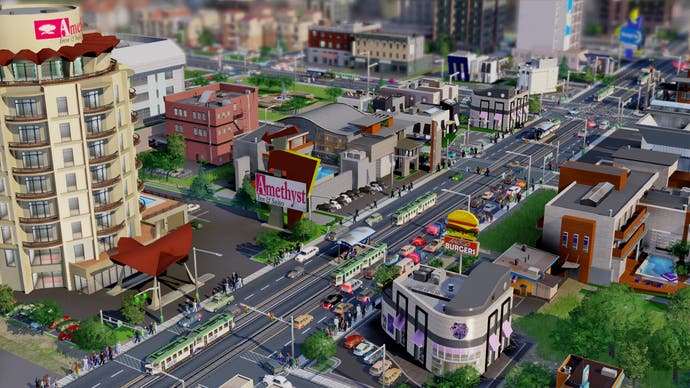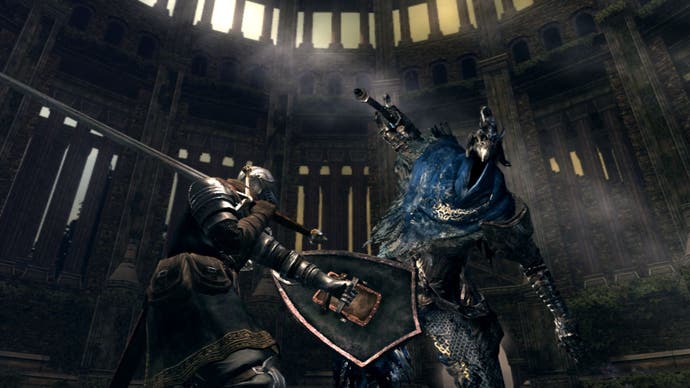Saturday Soapbox: Leave me alone
Always online is just one outcome of the unwelcome intrusiveness of modern games.
It's telling that last week Adam Orth found himself on the wrong side of public opinion after voicing his support for always online features, an opinion so badly received that he wound up ending the week no longer Microsoft Studio's creative director. It wasn't so much that he merely considered always online a good thing for gaming and consoles, but that he thought it was an acceptable step for both games and consoles to take, that the infrastructure was in place to support it, and we should just accept that as the way things are nowadays.
What's telling about it isn't that Orth was wrong. The proof in that pudding has been served in multiple flavours, from Diablo 3's infamous error 37 to SimCity's shameful faceplant of a launch that's only now starting to get into a state where EA can properly start rebooting the game and turning on features that should have been there at release. No, the telling part is that Orth was partly right, even if it was an uncomfortable truth.
These requirements are for the good of the game, we're so often told. Diablo is a fundamentally multiplayer game, after all - unless you're one of the many people who never played it that way. The cynical way to look at it was as a way of ensuring there were enough people around to make the real money auction house viable, but conspiracy theory aside, the requirement was the detriment of almost anyone who played the game, patchy connection or not.

SimCity was a worse offender, altering the experience in such a way that the zen-like peace and tranquillity of the previous games was constantly shattered by the requirement to interact with your neighbours. That a good chunk of these features weren't available, or weren't working, for a week or two after launch is irrelevant to the irrevocable change they made to the SimCity formula.
There's a genealogy to game mechanics. Halo's rechargeable shield was instantly adopted by almost every subsequent FPS after it, and after Gears of War pretty much all third person shooters at least had a go at turning themselves into cover shooters. Ideas and innovations ferment in the general consciousness of games until they start cropping up all over the place. Five years ago, maybe six, a solid internet connection wasn't something that everyone had access to. For some, it's still not.
But as with any new technology, developers have been eager to see what they can do with it. If you're making a multiplayer game, or even a multiplayer mode of a single player game, that's not particularly hard to wrap your head around. The problem is, in the past few years there's been an increase in developers trying to shoehorn in 'connectivity' features to single player games, often to the detriment of those games.
Think of Mass Effect 3, whose 'war readiness' mechanic was revealed to be greatly bolstered by a multiplayer component, forcing players who wished to focus purely on the single player story onto the online servers to make sure their stats were high enough to get the best ending. Think of Far Cry 3, whose map was littered with challenges that suddenly took you online and placed you on a leaderboard. Perhaps it wasn't such a transgression there, with so much of the mood and tone of the game constantly distracted by popups and notifications, but it certainly didn't help.
And it's here that the crux of the problem lies; for the entire history of videogames there's been a very clear distinction between multiplayer and single player games. No matter what the genre or platform, it's been extremely rare to find yourself in a situation where you're unsure whether it's one or another. What this means is that you enter each with a specific mindset, and when anything goes against that mindset, it irritates and grates.
Escapism is often cited as one of the main driving forces behind the compulsion to play videogames. It's another world, often an incredibly beautiful and awe-inspiring one, and the ease with which you're sucked into it is one of the magical things about the medium. The surreal beauty of those initial moments in Columbia couldn't be more effective at selling the world to you in BioShock Infinite. You're lost in this imagined universe, and then you walk from one level to the next and an achievement pops up, nudging you on the shoulder and reminding you that you're playing a game.

It's tempting to state that there's a sanctity to the single player experience that's being violated, but it's not quite that simple. Perhaps it would be if the likes of Dark Souls and Journey didn't exist, where the blending of single and multiplayer were handled so elegantly. But the trick there is that they're not shattering that illusion that's been so delicately constructed between the developer and the player.
It's easy to deride Adam Orth as someone who has offended the general gamer sensibilities with his insistence that there's no big deal to an always online console, but that's to ignore how much of an effect the internet connection has had on so many of the games that we like to enjoy as 'offline' experiences. Diablo and Simcity might be the worst of it, and they might be alone at the moment, but they're a vanguard, not an exception.
Their failings are not that the infrastructure isn't in place to support a game that's going to be always online, though. It's in corrupting the experience that defined both those series as one that was almost meditative. You can't get lost when you're playing with other people, because they'll always be there to remind you that this is a multiplayer experience. And the more that these systems infiltrate single player games, the less appealing they'll become, at least as an avenue of escapism.
Instead, I just want to be left alone to play the game. I don't want to feel like the developer is sitting behind me and watching me play, over my shoulder. I don't want me stats tracked, or my achievements noted, unless it's by the game itself, rather than some extraneous overlay. I don't want leaderboards, I don't want anything that's going to take me out of the story that's been so painstakingly constructed for me to experience. Leave me alone to enjoy it, and stop assuming I've got such a short attention span and such a fear of abandonment that you can't just let me be for a little while.

